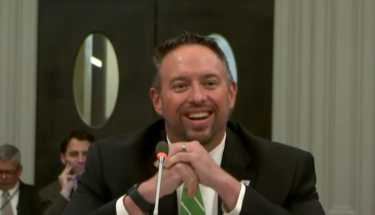On Tuesday morning, just after midnight on July 4, I witnessed both the Assembly and Senate pass the FY 2018 State Budget. The Governor then signed it into law, ending a three-day government shutdown. Overall, the final $34.7 billion budget included no new tax increases and a number of key provisions for the business community. The FY 2018 Budget marks the beginning of the state’s new fiscal year.
Final FY 2018 Budget — $34.7 Billion
Tax Relief for Business
The final FY 2018 Budget includes the continuation of a number of positive tax cuts and reforms, which were championed by NJBIA, for New Jersey businesses of all sizes. The following reforms, which began in the FY 2012 budget, remain fully phased-in and unchanged, and now total over $3 billion in savings:
Income/Loss Netting and NOL Carry-Forward, Single Sales Factor, S-Corp Minimum Tax cut of 25 percent from FY 2012 levels, R&D Tax credit, Tech. Business Tax Certificate Transfer Program, Transitional Energy Facilities Assessment Phase-out.
Additionally, the FY 2018 budget includes bipartisan tax reforms approved by the Governor and the Legislature in October 2017, which addressed New Jersey’s tax climate and provided substantial investment in the state’s infrastructure by increasing the state’s gas tax. These reforms include a full elimination of the estate tax by January 1, 2018, an increase in the income tax exclusion for pension and retirement income, a reduction in the state sales tax, an increase in the earned income tax credit and an income tax deduction for veterans.
Transportation
The final FY 2018 budget includes a $2 billion State Transportation Capital Program. The Program includes over $1.3 billion for state and local highway and bridge projects, and another $676 million for mass transportation.
Education, Higher Education & Workforce Development
In regard to school funding reform changes, the plan includes $100 million in new school aid for underfunded districts plus $31 million in Adjustment Aid reallocated from overfunded districts. Additionally, the plan includes $25 million to expand pre-school education and another $25 million for Extraordinary Special Education Aid. The agreement also limits reductions in funding for adjustment aid to no more than 2 percent of state aid.
The FY 2018 budget provides $2.3 billion in higher education funding, including $425.9 million in funding for Tuition Aid Grants (TAG).
This budget also marked the fourth year that funding has been included for a County Vocational School District Partnership Grant Program. NJBIA first advocated for this grant program in FY 2015 because it encourages vocational schools to partner with local high schools and county colleges to create career programs in existing facilities. The program will receive $3 million in FY 2018.
Ultimately, this will expand access to quality career and technical education programs, give more students the skills needed to launch a successful career and ensure that employers will have a skilled and trained pipeline of employees.
Pension & Health Benefits
The final FY 2018 budget includes a $2.5 billion pension payment. This is the largest pension payment in New Jersey history, which includes combined contributions to the state’s defined benefit funds from the state budget and net Lottery proceeds. As such, the final budget includes the contribution of the Lottery Enterprise to certain state-administered retirement systems after the Governor proposed contributing the revenues from the Lottery to eligible pension plans during his budget address in February.
The Lottery Enterprise Contribution addresses a key fiscal concern for the state by providing a significant asset, reducing the retirement system’s unfunded liability, and elevating its funded ratio – all while maintaining funding for programs currently receiving Lottery net proceeds. Shoring up the unfunded liability of the pension fund is critically important for the state’s long-term economic growth.
The Final FY 2018 Budget also:
- Maintains a surplus of $413 million
- Contributes almost $900 million in direct property taxpayer relief programs






